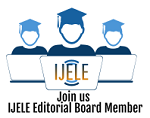(2) * Dwi Sulisworo
(3) Ika Maryani
*corresponding author
AbstractThis study aims to explore the practices and impact of transformational school leadership within the context of Indonesian education. Using a qualitative research design, the study employed semi-structured interviews with school principals, administrative staff, and teachers to gather in-depth insights into leadership behaviors, challenges, and outcomes. The data were analyzed using NVivo 12 software, following thematic coding techniques to identify recurring themes and relationships. The findings reveal that transformational leadership positively influences educational outcomes, school climate, and organizational effectiveness. Leaders who demonstrated clear vision, empathy, and the ability to motivate others contributed to enhanced student achievement, innovative teaching practices, and improved institutional performance. Despite these benefits, school leaders also face significant challenges, including limited resources, internal resistance, and external stakeholder constraints. However, these challenges can be navigated through strategies such as inclusive leadership, collaborative problem-solving, and investment in professional development. This study concludes that transformational leadership holds considerable promise for driving educational improvement and development in Indonesia. It underscores the importance of leadership training and policy support to cultivate leaders who can inspire change, adapt to contextual complexities, and build resilient school communities.
KeywordsTransformational leadership; School improvement; Educational leadership in Indonesia; Organizational change
|
DOIhttps://doi.org/10.31763/ijele.v6i3.1814 |
Article metrics10.31763/ijele.v6i3.1814 Abstract views : 316 | PDF views : 13 |
Cite |
Full Text Download Download
|
References
[1] L. Dudar, S. Scott, and D. E. Scott, Accelerating Change in Schools: Leading Rapid, Successful, and Complex Change Initiatives, vol. 27. Emerald Publishing Limited, 2017. doi: 10.1108/S1479-366020160000027004
[2] A. Hargreaves, Leadership from the middle: The beating heart of educational transformation. New York: Routledge, 2023. doi: 10.4324/9781315682921
[3] R. G. Tharp, P. Estrada, S. S. Dalton, and L. A. Yamauchi, Teaching transformed: Achieving excellence, fairness, inclusion, and harmony. Routledge, 2018. doi: 10.4324/9780429496943
[4] F. Kartiasih, N. Djalal Nachrowi, I. D. G. K. Wisana, and D. Handayani, “Inequalities of Indonesia’s regional digital development and its association with socioeconomic characteristics: a spatial and multivariate analysis,†Inf. Technol. Dev., vol. 29, no. 2–3, pp. 299–328, Jul. 2023, doi: 10.1080/02681102.2022.2110556.
[5] S. Kurniawati, D. Suryadarma, L. Bima, and A. Yusrina, “Education in Indonesia: A White Elephant?,†Southeast Asian Econ., vol. 35, no. 2, pp. 185–199, Aug. 2018, doi: 10.1355/ae35-2e.
[6] T. D. Truong and P. Hallinger, “Exploring cultural context and school leadership: conceptualizing an indigenous model of có uy school leadership in Vietnam,†Int. J. Leadersh. Educ., vol. 20, no. 5, pp. 539–561, Sep. 2017, doi: 10.1080/13603124.2015.1105388.
[7] M. Abdullah, “School Culture to Serve Performance of Madrasah in Indonesia,†QIJIS (Qudus Int. J. Islam. Stud., vol. 7, no. 1, p. 71, Jun. 2019, doi: 10.21043/qijis.v7i1.4809.
[8] T. J. Rothausen, “Integrating Leadership Development with Ignatian Spirituality: A Model for Designing a Spiritual Leader Development Practice,†J. Bus. Ethics, vol. 145, no. 4, pp. 811–829, Nov. 2017, doi: 10.1007/s10551-016-3241-4.
[9] S. Cherkowski, “Positive teacher leadership: building mindsets and capacities to grow wellbeing.,†Int. J. Teach. Leadersh., vol. 9, no. 1, pp. 63–78, 2018.
[10] E. Egel and L. W. Fry, “Spiritual Leadership as a Model for Islamic Leadership,†Public Integr., vol. 19, no. 1, pp. 77–95, Jan. 2017, doi: 10.1080/10999922.2016.1200411.
[11] K. Allen, M. L. Kern, D. Vella-Brodrick, J. Hattie, and L. Waters, “What Schools Need to Know About Fostering School Belonging: a Meta-analysis,†Educ. Psychol. Rev., vol. 30, no. 1, pp. 1–34, Mar. 2018, doi: 10.1007/s10648-016-9389-8.
[12] M. Fullan, The principal 2.0: Three keys to maximizing impact. John Wiley & Sons, 2023.
[13] A. A. Alazmi, “School leadership in context: the influence of Islamic values and beliefs on Kuwaiti school principal practices,†Int. J. Leadersh. Educ., vol. 28, no. 3, pp. 618–638, May 2025, doi: 10.1080/13603124.2023.2292148.
[14] K. Anwar and M. M. A. Sholeh, “The Model of Developing School Culture Based on Strengthening Religious Characters,†in 2nd Southeast Asian Academic Forum on Sustainable Development (SEA-AFSID 2018), 2021, doi: 10.2991/aebmr.k.210305.039.
[15] K. Leithwood and D. Jantzi, “Transformational school leadership for large-scale reform: Effects on students, teachers, and their classroom practices,†Sch. Eff. Sch. Improv., vol. 17, no. 2, pp. 201–227, Jun. 2006, doi: 10.1080/09243450600565829.
[16] C. Wijaya and E. Saputra, “Management of Islamic Education Based on Interreligious Dialogue in The Learning Process in Schools as An Effort to Moderate Religion in Indonesia,†Rigeo, vol. 11, no. 5, 2021.
[17] C. Day, Q. Gu, and P. Sammons, “The Impact of Leadership on Student Outcomes,†Educ. Adm. Q., vol. 52, no. 2, pp. 221–258, Apr. 2016, doi: 10.1177/0013161X15616863.
[18] K. Arar, R. Sawalhi, A. DeCuir, and T. Amatullah, Islamic-Based Educational Leadership, Administration and Management. London: Routledge, 2023. doi: 10.4324/9781003360070
[19] H. A. A. Thaidi, M. F. Ab Rahman, and A. Z. Salleh, “Addressing challenges, unleashing potentials: towards achieving impactful Islamic social finance,†Ulum Islam., vol. 35, no. 02, pp. 63–85, 2023.
[20] L. S. Kaplan and W. A. Owings, Organizational behavior for school leadership: Leveraging your school for success. New York, NY : Routledge, 2017.: Routledge, 2017. doi: 10.4324/9781315669502
Refbacks
- There are currently no refbacks.
Copyright (c) 2025 Ummu Qurrora Ayun, Dwi Sulisworo, Ika Maryani

This work is licensed under a Creative Commons Attribution-ShareAlike 4.0 International License.

International Journal of Education and Learning
ISSNÂ 2684-9240
Published by Association for Scientific Computing Electronics and Engineering (ASCEE)
W : http://pubs2.ascee.org/index.php/ijele
E : zalik@ascee.org

This work is licensed under a Creative Commons Attribution-ShareAlike 4.0 International License.





















